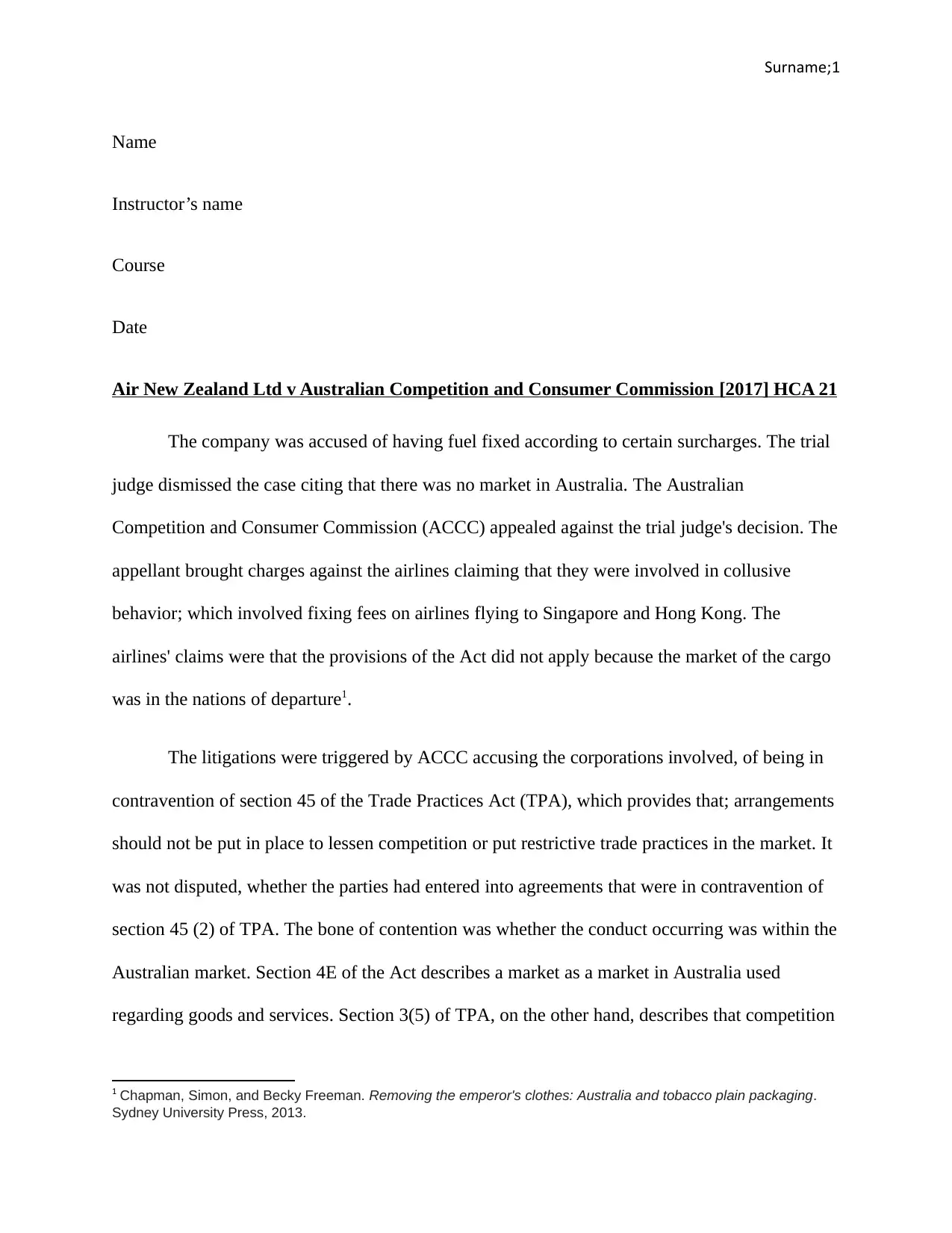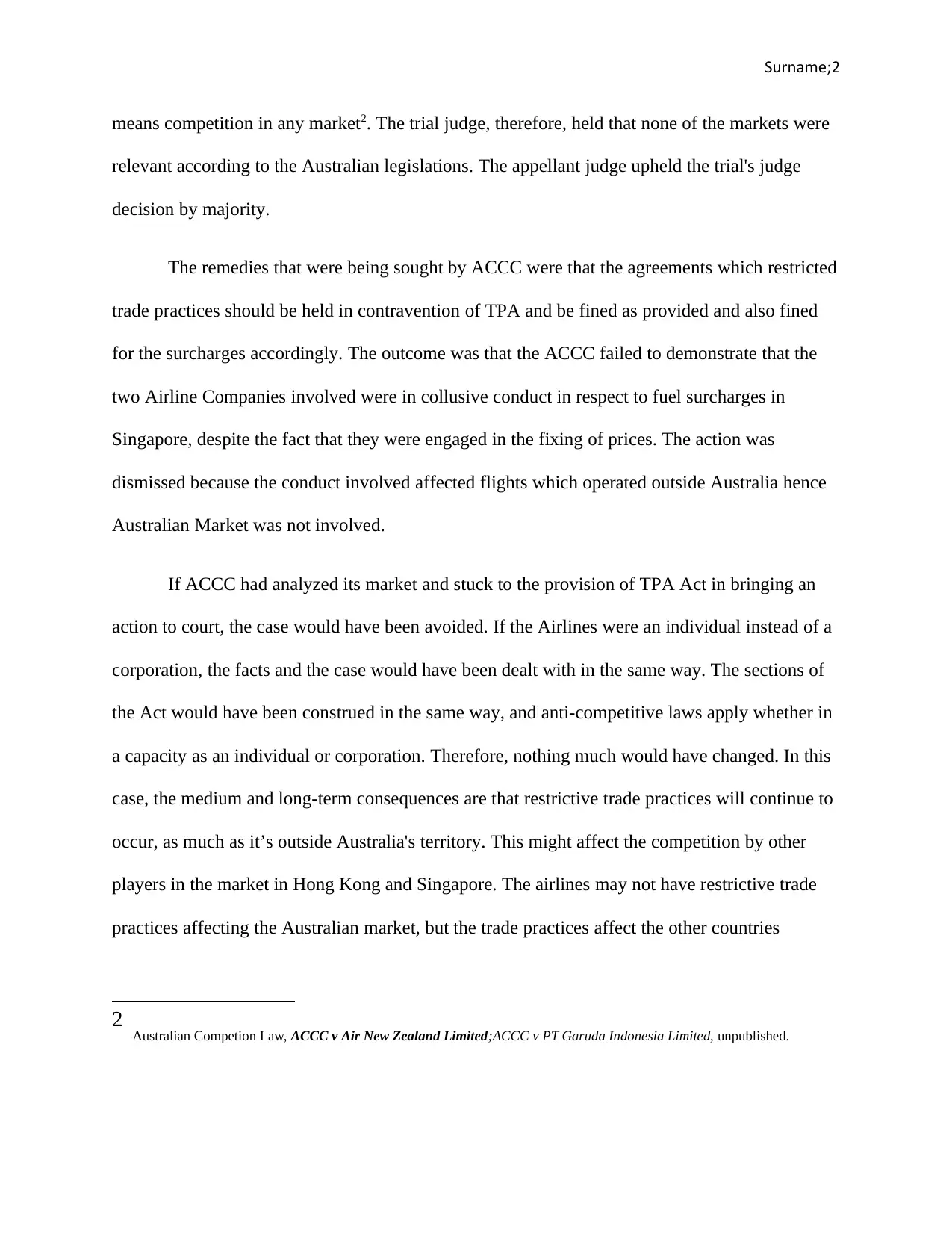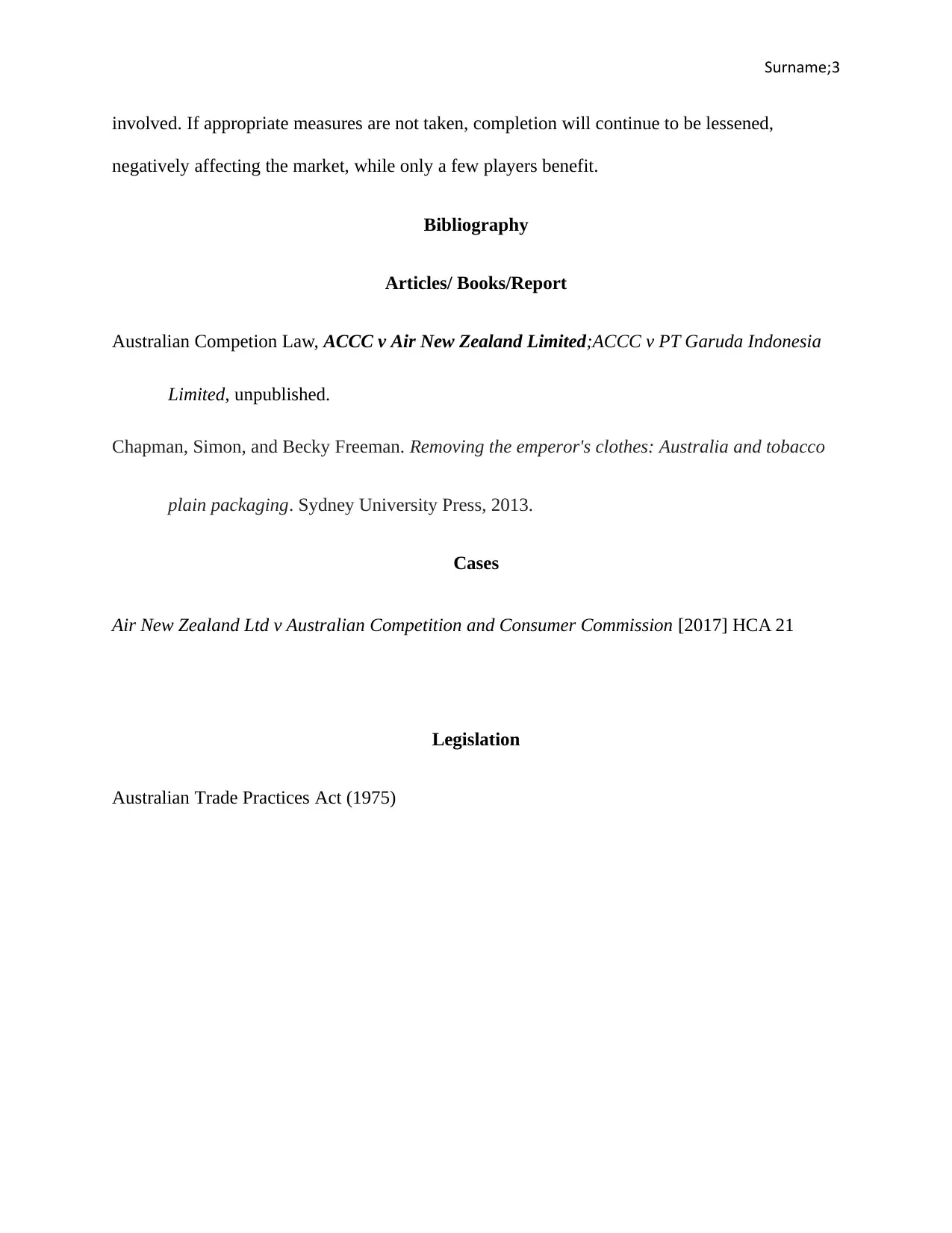Case Study: Australian Competition Law and Air New Zealand's Practices
VerifiedAdded on 2021/04/22
|3
|645
|216
Case Study
AI Summary
This case study examines the Air New Zealand v. Australian Competition and Consumer Commission (ACCC) case, focusing on allegations of collusive behavior concerning fuel surcharges. The trial judge initially dismissed the case, but the ACCC appealed. The core issue revolved around whether the conduct fell within the Australian market, with the court ultimately ruling in favor of Air New Zealand, as the actions occurred outside of Australia. The study analyzes the application of the Trade Practices Act (TPA), specifically section 45, and the interpretation of 'market' under the Act. It discusses the legal arguments, the impact of the decision on competition, and the potential long-term consequences of restrictive trade practices, particularly in relation to markets in Singapore and Hong Kong. The case underscores the importance of market definition and the implications of anti-competitive behavior. The analysis also considers the implications if the defendant had been an individual rather than a corporation.
1 out of 3







![[object Object]](/_next/static/media/star-bottom.7253800d.svg)